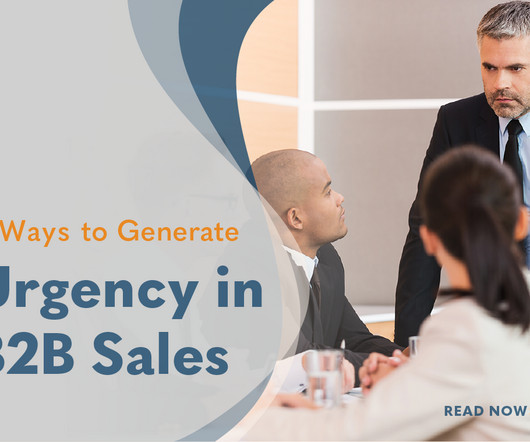6 Ways to Generate Urgency in B2B Sales
Janek Performance Group
AUGUST 23, 2023
No one wants to miss a deal, and, in sales, time counts. Of course, B2B selling is different. Also, B2B sellers must guard against negative stereotypes. But as trusted advisors, B2B sellers can still generate urgency to help skeptical buyers help themselves. However, in B2B, problems rarely exist in a vacuum.















Let's personalize your content